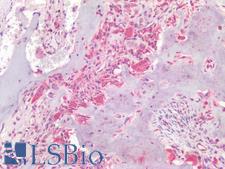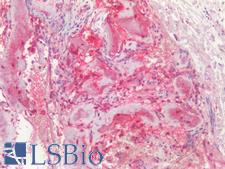Login
Registration enables users to use special features of this website, such as past
order histories, retained contact details for faster checkout, review submissions, and special promotions.
order histories, retained contact details for faster checkout, review submissions, and special promotions.
Forgot password?
Registration enables users to use special features of this website, such as past
order histories, retained contact details for faster checkout, review submissions, and special promotions.
order histories, retained contact details for faster checkout, review submissions, and special promotions.
Quick Order
Products
Antibodies
ELISA and Assay Kits
Research Areas
Infectious Disease
Resources
Purchasing
Reference Material
Contact Us
Location
Corporate Headquarters
Vector Laboratories, Inc.
6737 Mowry Ave
Newark, CA 94560
United States
Telephone Numbers
Customer Service: (800) 227-6666 / (650) 697-3600
Contact Us
Additional Contact Details
Login
Registration enables users to use special features of this website, such as past
order histories, retained contact details for faster checkout, review submissions, and special promotions.
order histories, retained contact details for faster checkout, review submissions, and special promotions.
Forgot password?
Registration enables users to use special features of this website, such as past
order histories, retained contact details for faster checkout, review submissions, and special promotions.
order histories, retained contact details for faster checkout, review submissions, and special promotions.
Quick Order
PathPlusTM Osteocalcin Antibodies
BGLAP (Osteocalcin) is a protein secreted by osteoblasts that functions in metabolic regulation. It is pro-osteoblastic (bone-building) and is involved in bone mineralization and calcium ion homeostasis. Osteocalcin functions as a hormone that induces beta cells in the pancreas to release more insulin. It also directs fat cells to release adiponectin, thus increasing sensitivity to insulin. It enhances testosterone synthesis and is involved in male fertility. It is thought to promote growth and invasion in pancreatic cancer cells, and additionally some genetic BGLAP variants are associated with increased risk for hepatitis B virus-related hepatocellular carcinoma. In immunohistochemistry, BGLAP has secretory and extracellular positivity in the myometrium, brain, gastrointestinal tract, liver, pancreas, muscle and at low to variable levels in other tissues throughout the body.
References: The UniProt Consortium. Nucleic Acids Res. 47: D506-515 (2019); Nucleic Acids Res. 2016 Jan 4;44(D1):D733-45, PMID:26553804; Mol Cancer. 2007 Dec 28;6:83, PMID: 18163903; PLoS One. 2015 Jan 14;10(1):e0116479, PMID: 25587715
2 PathPlusTM Antibodies


☰ Filters
Products
Antibodies
(2)
Type
Primary
(2)
Target
Osteocalcin
(2)
Application
IHC-P
(2)
Host
rabbit
(2)
Product Group
PathPlus Cancer
(2)
Clonality
polyclonal pc
(2)
Format
Unconjugated
(2)
Publications
No
(2)

Cancer
Fast Shipping
Osteocalcin Rabbit anti-Human Polyclonal Antibody
IHC-P
Unconjugated
50 µg/$460

Cancer
Fast Shipping
Osteocalcin Rabbit anti-Human Polyclonal Antibody
IHC-P
Unconjugated
50 µg/$460
Viewing 1-2
of 2
product results










